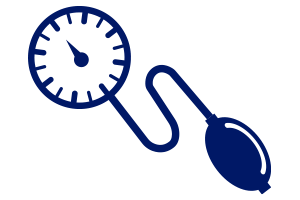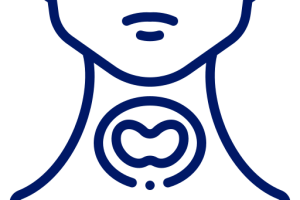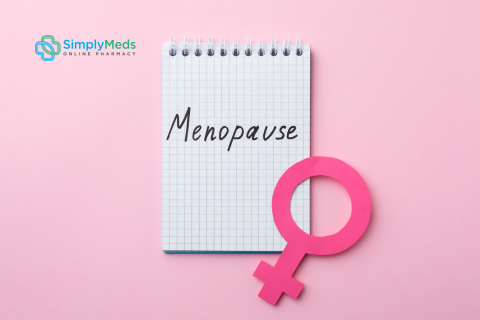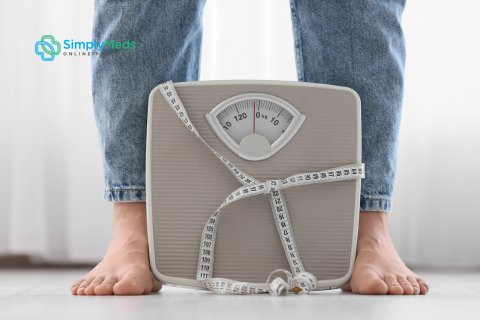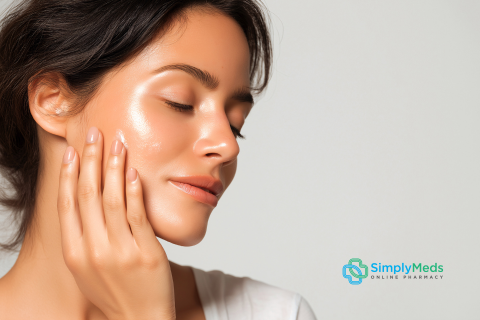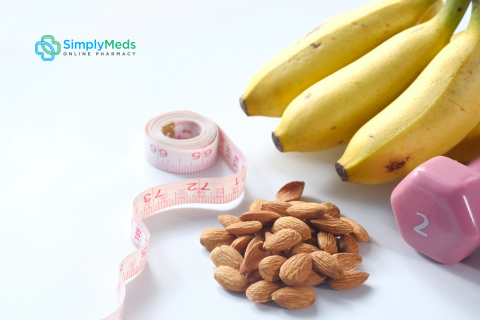SimplyMeds Online Supporting World Menopause Day 2025
Oct 16, 2025
Women's Health
18th October marks World Menopause Day. This campaign aims to raise awareness and improve understanding of the physical and emotional changes that women experience during the menopause. This year's theme is Lifestyle Medicine, focusing on how lifestyle choices such as diet, exercise, sleep, and stress management can help support women’s health and wellbeing throughout this natural life stage.
At Simply Meds Online, we recognise how important it is for women to access reliable information and trusted treatment options. Whether you’re approaching the perimenopause, experiencing menopausal symptoms, or supporting someone who is, understanding the changes that occur and the help available can make a real difference. Fear of the unknown can heighten anxiety, which is why having the right information matters.
If you’re considering treatment options, alongside lifestyle changes, you can explore our range of Hormone Replacement Therapy (HRT) products and discover how they can help ease symptoms and improve quality of life.
What is Menopause?
Menopause is a completely natural biological process. It occurs when the ovaries stop releasing eggs. There is also a marked reduction in the production of hormones such as oestrogen and progesterone. Once a woman has not had a period for 12 consecutive months, menopause is confirmed. The lead-up to menopause is known as perimenopause.
In the UK, the average age for reaching menopause is around 51, although it can happen earlier or later. Some women experience early menopause, which occurs before the age of 45, and premature menopause, which occurs before the age of 40. This can happen naturally or as a result of medical treatments such as chemotherapy or surgery to remove the ovaries.
The symptoms of menopause can vary widely from woman to woman. Common symptoms of perimenopause and menopause include:
- Mood changes or increased anxiety
- Memory lapses or difficulty concentrating (brain fog)
- Changes in skin and hair texture
- Hot flashes, also known as hot flushes, and night sweats
- Sleep disturbances and fatigue
- Vaginal dryness or discomfort
- Decreased libido (sex drive)
While menopause is a normal part of ageing, the changes in hormone levels can significantly affect both physical and emotional well-being. Understanding what’s happening in your body is the first step towards finding the right ways to manage symptoms and maintain a healthy, balanced lifestyle.
What’s the Difference Between Perimenopause and Menopause?
Many women begin to experience symptoms before their periods stop completely. This stage is known as perimenopause, which can start several years before menopause.
During perimenopause, hormone levels fluctuate unpredictably. Periods may become irregular, heavier, or lighter, and symptoms such as hot flushes, mood changes, and sleep problems can begin. For some women, these early changes can be confusing or distressing, especially if they do not realise that perimenopause has begun.
Menopause is reached when periods stop altogether, marking the end of the menstrual cycle. After this stage, a woman enters the postmenopausal phase, when hormone levels stabilise at a lower level. Some symptoms, such as hot flushes, may ease over time, but others, such as vaginal dryness or reduced bone density, can continue.
Understanding where you are in this transition can help guide treatment decisions and lifestyle choices. Regular check-ups with your GP or a menopause specialist can help you manage symptoms and ensure that treatments are right for you.
Menopause in the Workplace
The menopause is a significant life transition that can affect work performance, confidence, and overall well-being. In recent years, it has become a major focus for workplace health and equality initiatives.
Around three out of four women experience symptoms that can interfere with daily life, and one in four describes their symptoms as severe. These can make it difficult to concentrate, sleep, or manage stress, all of which can have an impact on work.
Creating a supportive workplace culture is vital. Employers can help by:
- Providing access to menopause information and resources
- Offering flexible working options
- Allowing regular breaks or access to a cool workspace
- Training managers to talk about menopause confidently and sensitively
By normalising discussions about menopause, workplaces can help women feel supported rather than isolated. Both Menopause Support and the British Menopause Society offer excellent guidance for employers and employees looking to make workplaces more inclusive.
Treatments for Menopause
The most widely used and effective treatment for menopause symptoms is Hormone Replacement Therapy (HRT). HRT works by restoring the levels of oestrogen (and sometimes progesterone or testosterone) that decline during menopause. This helps to relieve many symptoms and can also protect against osteoporosis and other long-term health issues.
HRT is available in a variety of forms, including:
- Tablets
- Skin patches
- Gels and sprays
- Vaginal creams or pessaries
The choice of treatment depends on your symptoms, health history, and personal preferences. It’s always best to discuss your options with a healthcare professional, who can help tailor treatment to your individual needs.
You can learn more about treatment options and find suitable products through our Menopause and HRT page.
For women who cannot or choose not to take HRT, other options such as non-hormonal medications, natural supplements, or alternative therapies may provide relief.
Lifestyle Changes that Can Help with Menopause Symptoms
This year’s Lifestyle Medicine theme highlights the crucial role that healthy habits play in managing menopause symptoms. Small, consistent changes can have a powerful impact on both physical and emotional well-being.
Here are some practical lifestyle tips:
1. Eat a Balanced Diet
Eating well may seem to be the answer to pretty much everything; however, it can make a significant difference during menopause. Reduce the amount of processed and ultraprocessed foods in your diet, opting for whole grains, lean protein and a variety of vegetables and fruits. Foods that are rich in calcium and vitamin D support bone health, while plant-based phytoestrogens (found in soy, flaxseeds, and chickpeas) may help balance hormones naturally. A multivitamin or targeted supplement to ensure your nutritional needs are met might be worth exploring.
2. Stay Active
Regular physical activity, such as walking, swimming, or yoga, can help manage weight, improve mood, and strengthen bones and muscles. Aim for at least 150 minutes of moderate exercise per week.
3. Prioritise Good Sleep
Sleep disturbances are common during menopause. Try to maintain a consistent sleep schedule, avoid caffeine late in the day, and create a calm, cool bedroom environment.
4. Manage Stress
Techniques such as mindfulness, deep breathing, or meditation can help reduce anxiety and improve emotional well-being. Taking time for hobbies and relaxation also supports mental health.
5. Avoid Smoking and Cut Back on Alcohol
Both smoking and excessive alcohol can worsen symptoms like hot flushes and increase the risk of osteoporosis and heart disease.
6. Stay Connected
Talking openly with friends, family, or support groups can make the menopause journey feel less isolating.
For more information and additional support, visit Macmillan’s Menopause Awareness Month page.
Supporting Each Other During Menopause Awareness Month, and Beyond
One of the best resources when it comes to perimenopause and menopause is talking to other women. Online forums, local groups and similar places offer opportunities to talk about the day-to-day aspects of menopause. Sharing top tips, empathising, encouraging lifestyle changes, laughing about the absurdities of brain fog with others who are there or have been through the process can help on many fronts. Most of all, it can help you change your mindset from it is something happening to you, to thinking of it being a shared experience that has ups and downs, but one you can share with others.
Supporting World Menopause Day
Menopause is a natural stage of life, but that doesn’t mean women should have to struggle through it without support. By raising awareness, sharing knowledge, and making lifestyle choices that promote well-being, it’s possible to approach this transition with confidence, positivity and a plan in place.
Here at Simply Meds Online, we’re ready to help you find effective treatments and provide reliable information to manage your symptoms and help you feel your best.




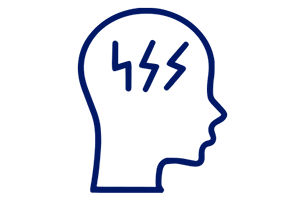
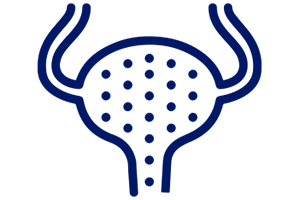











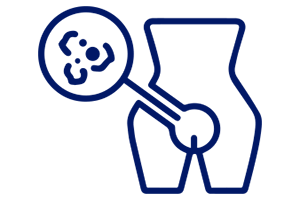










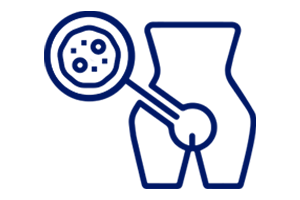
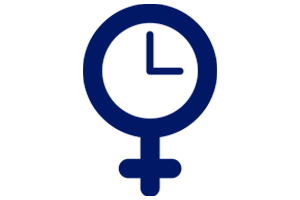
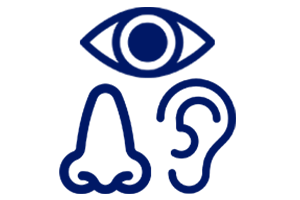










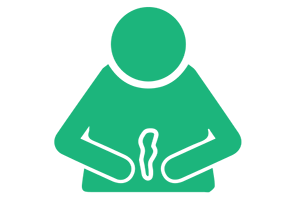



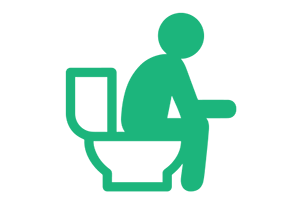

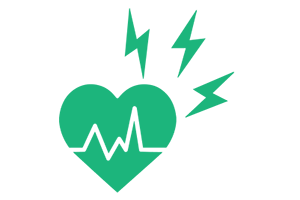




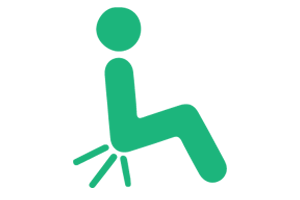



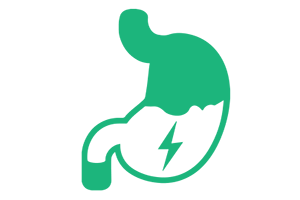
















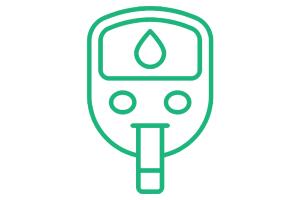





 Account
Account

